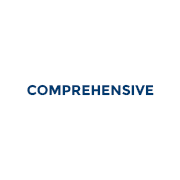Innovate. Optimize. Improve.
American Institutes for Research (AIR) partners with developers and practitioners in education, health, workforce, and related fields to conduct efficacy-oriented R&D to accelerate program development and maximize impact.
Our Approach Is
Comprehensive
AIR uses a tailored and comprehensive approach to apply rigorous evaluation methods to measure impact and guide the continuous improvement of programs. We leverage our methodological and content expertise to design and conduct rigorous but flexible R&D and evaluations that generate actionable results quickly.
Our Approach Is
Tailored
We match the appropriate experimental methodology to the complexity of real interventions, in the fields of education, workforce, health, and more. Developers and users of interventions, products, and strategies need high-quality and timely information about what is and is not working, and information about what can be improved and how. The type of information needed will vary depending on the stage of development of the strategy, approach or intervention.
Our Approach Is
Rigorous
Our experts use rigorous research methods appropriate for each stage of development. Experiments can be used to select the best presentation of the intervention materials in the usability stage or to support iterative R&D in an effort to “optimize” programs. Small-scale, fast-turnaround experiments can generate early evidence of program efficacy, and large-scale experiments can document program effectiveness.
Our Approach Utilizes
Experienced Experts
Our staff has the expertise and experience to apply rigorous methods in every stage of the development, having designed and conducted high quality development, efficacy and effectiveness trials for over a decade.
Our Approach Promotes
Close Partnerships
Our research experts work closely with practitioners, technical assistance providers, and intervention developers — we are fluent in translating research to practice and practice to research. We have extensive experience working with education and healthcare organizations, and product and program developers, to support the development of evidence-based strategies and bring them to scale.









